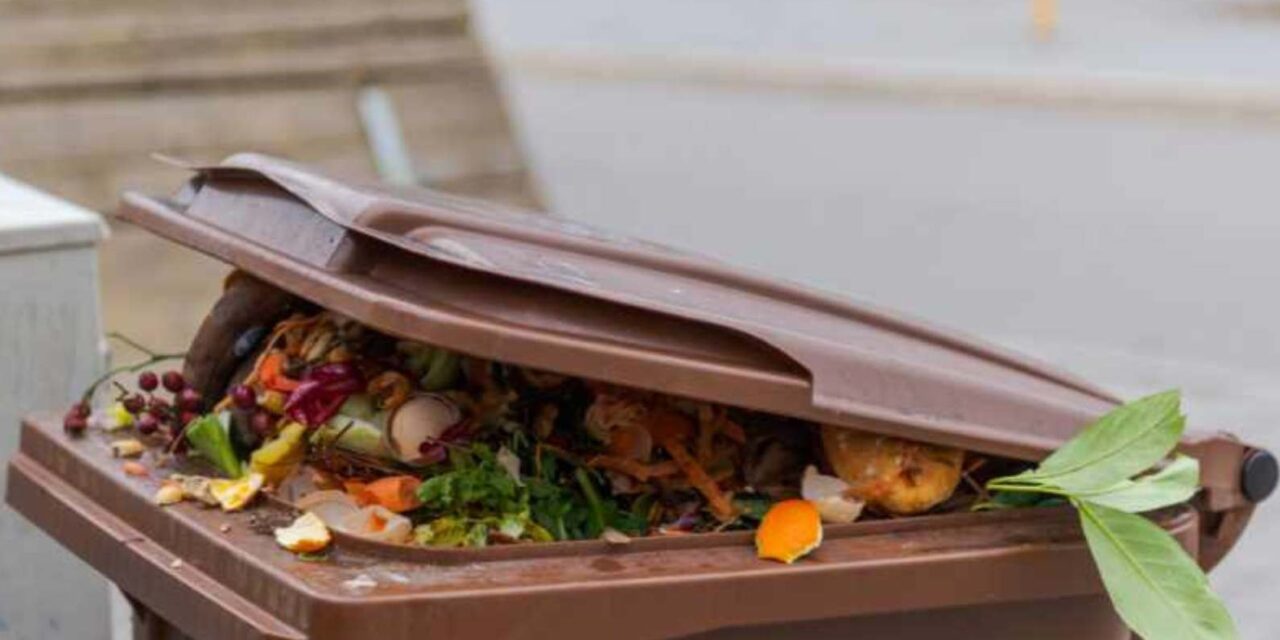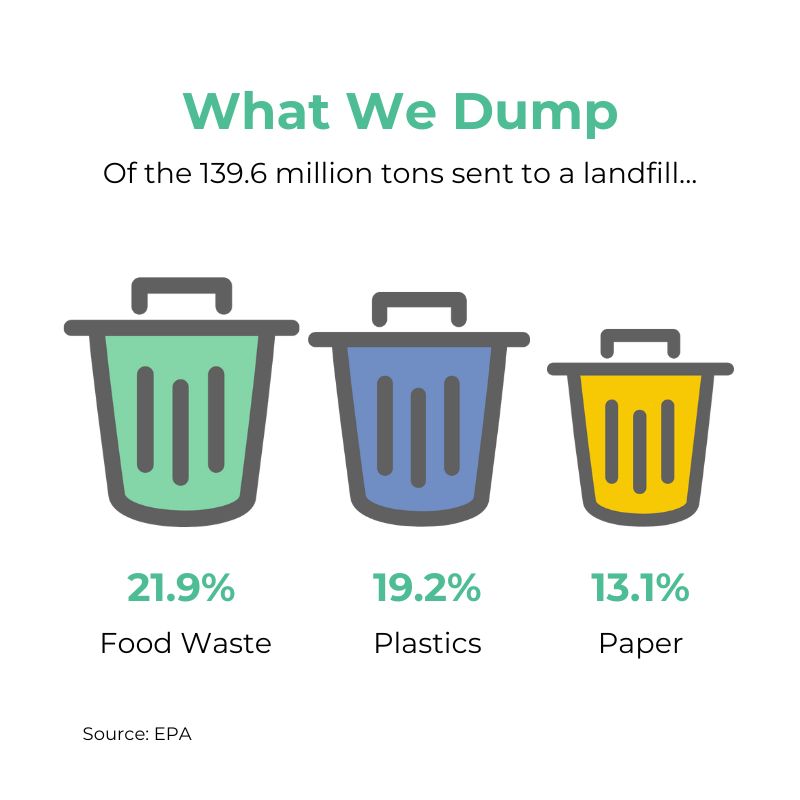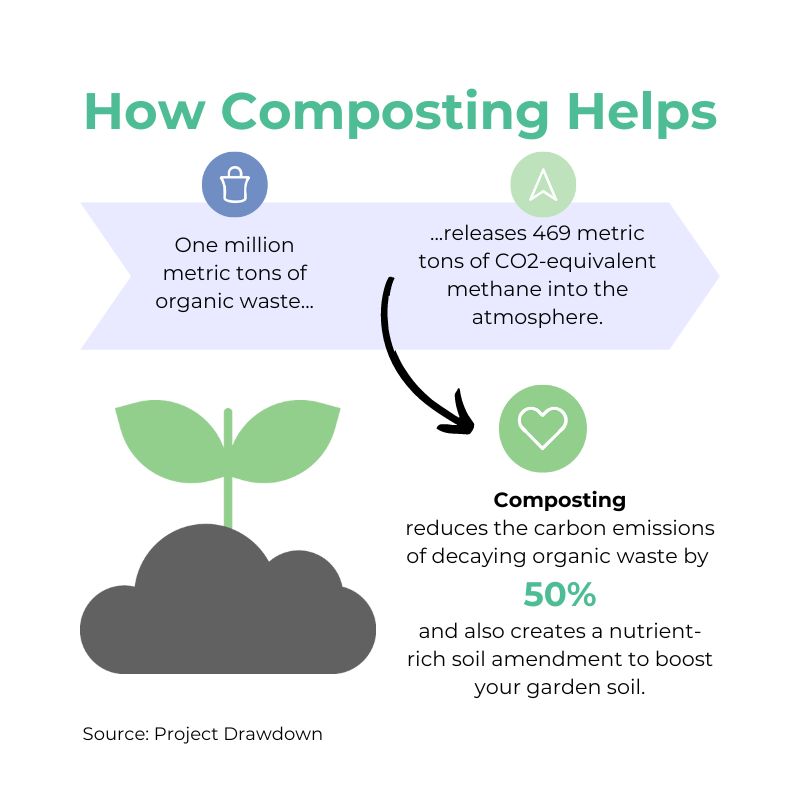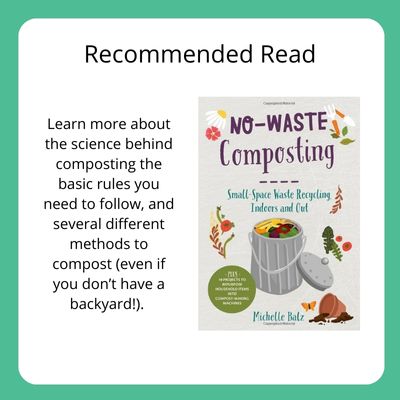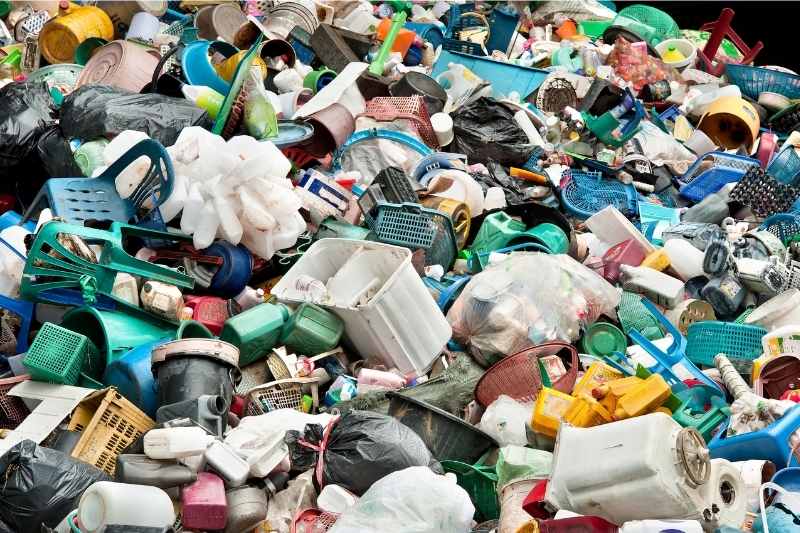Cities and states across America have recognized that diverting organic waste from landfills can have massive climate benefits. Discover the composting champs near you that are taking a bite out of food waste.
Americans are the biggest trash producers in the world, creating almost twice as much waste as Germany, Italy, and other major European nations. Incredibly, each American produces more than 5 pounds of garbage per day, about 1 ton of trash a year per person. The majority of this trash is dumped into landfills or burned in incinerators.
But it’s food waste, according to the Food and Drug Administration (FDA), that “is a growing problem in our modern society and an untapped opportunity.” The Environmental Protection Agency (EPA) has estimated that about 30-40% of the food that is produced ends up in landfills. Food waste makes up the largest percentage of solid waste that enters landfills (a whopping 25%!). When food waste decomposes, it creates methane, a gas that is 25 times more polluting than carbon dioxide. Methane further exacerbates our climate crisis.
“In the past decade,” the New Hampshire Bulletin noted, “many U.S. communities of different sizes and political leanings have created mostly voluntary composting programs, with mandatory programs concentrated in large cities and a handful of blue states. Supporters say these programs reduce emissions, free up landfill space, create jobs, and produce soil free of harmful fertilizers that pollute water sources.”
San Francisco was the pioneer in food waste reallocation.
San Fran partnered with Recology in the late 1990s to accomplish its zero waste goal. Today, it diverts about 600 tons of compostable material a day (150,000 tons annually). A recent press release shared that the city has met its goal to divert 80% of waste from landfills. Since then, over 200 cities across the country have started their own organic waste projects in an attempt to go greener.
Most recently, New York City has enacted an ordinance that would require residents to place organic waste in designated bins for curbside pickup in what will be the country’s largest composting program. If successful, it would divert 8 million pounds of compostable waste daily out of landfills and significantly reduce NYC’s carbon footprint.
New York enacted its state-wide Food Donation and Food Scraps Recycling Law in 2022. The state joins eight others with laws that require residents and/or businesses to divert their food waste.
- California. The Golden State’s progressive Mandatory Organic Waste Collection law requires all residents, businesses, and other public and private entities to separate their green waste.
- Connecticut. Connecticut’s Commercial Organics Recycling law was the first to require commercial organics recycling from businesses such as supermarkets, hotels, resorts, and food retailers, distributors, and manufacturers.
- Maryland. This state’s New Food Residuals Diversion Regulation mandates that any resident or business producing over 2 tons of organic waste a week must separate their green waste and divert it from landfills.
- Massachusetts. The Bay State’s Commercial Food Material Disposal Ban requires businesses producing over half a ton of food waste per week to separate their organic materials.
- New Jersey. This state’s Food Waste Recycling and Food Waste-to-Energy Production Law mandates that all commercial businesses producing over 52 tons of food waste per year must separate their green waste and divert it to designated food waste recycling plants.
- Rhode Island. Small but mighty, the state of Rhode Island has a Food Waste Ban that requires educational institutions generating over 30 tons of organic waste per year to send food scraps to recycling facilities.
- Vermont. Not to be outdone by its neighboring states, Vermont’s progressive Universal Recycling Law applies to both households and businesses. Organic refuse can be donated for human or animal consumption, composted, or sent to organic waste recycling centers.
- Washington. This state’s Food Waste Reduction Act maps out incremental changes that will result in a 50% reduction of organic waste. They intend to meet this goal through food waste prevention, modified energy production, composting, diverting edible food to hunger relief, repurposing inedible food for livestock, and other organic recycling programs.
Getting an organic waste removal program started certainly has its challenges.
Creating a new waste management stream has steep up-front costs, including buying new organic waste bins for the community, securing composting facilities, and maintaining essential infrastructure. Such an endeavor also requires significant public education efforts to ensure the community understands what can and cannot be composted. However, communities across America are finding that these hurdles are worth it and can have a significant impact on the future of our planet.
Even if your city isn’t yet participating, you can still divert your food waste from landfills. If you have access to a backyard, you can create your own outdoor compost pile with the help of Yvonne Dwyer’s tips and tricks! With the right mix of brown and green matter, you can turn those scraps into nutrient-rich compost that can provide significant benefits for your plants and vegetable garden.
Don’t have the room to compost? Vermicomposting might be the solution for you.
With the help of a specific type of worm called the red wiggler (Eisenia fetida), you can turn your scraps into what composters refer to as “black gold.” Vermicompost is extremely nutrient-rich. The worms digest the soil, and the castings they produce encourage the growth of healthy microbes and discourage plant disease. Red wigglers can eat up to ½ a pound of food a day, and only require a ventilated 16-inch deep container to thrive.
You can also research if composting services like CompostNow are available in your community.
These composting services will pick up your residential or business-created food scraps and deliver compost to you or its partners. Or check out composting sites by city to find a composting site near you.
Composting is an excellent example of how small changes can make a big difference! Support your community efforts and rethink your waste today.
Learn more about food waste management and recycling:

Written by Kristina Shane
Editor and OPL Content Contributor
“I’ve always had a strong inclination to protect and nurture the people and living things around me; especially after having kids, I became passionate about conserving our planet for future generations. It’s my duty to teach my children, through words and actions, how to be good citizens and thoughtful stewards for our planet. Joining One Planet Life felt like a natural next-step for me, and I’m thrilled to support their mission and strengthen my own sustainability efforts.”

